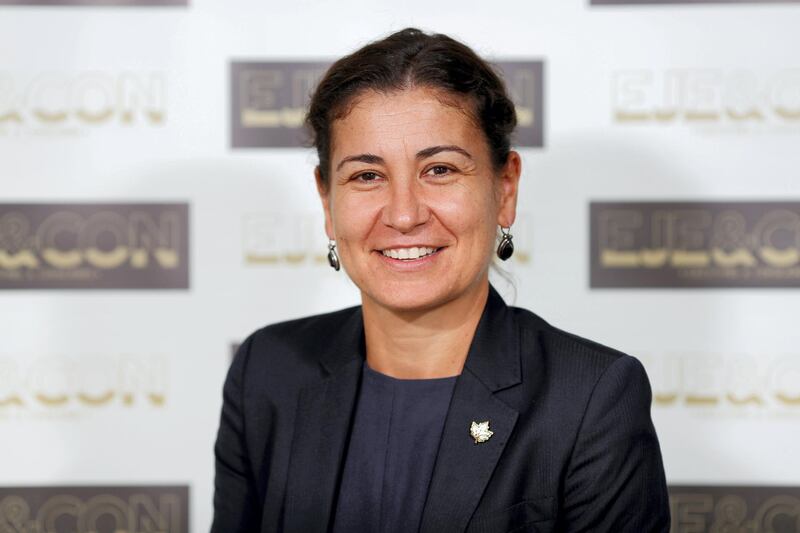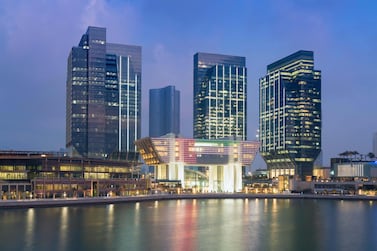Spanish infrastructure company Acciona plans to invest in hydrogen development in the Middle East as it expands its capacity to produce the clean fuel across Iberia.
The renewables specialist, which has operations in 60 countries, plans to secure up to a few hundred million euros from the EU as work begins on a groundbreaking project on the island of Mallorca.
"We would want to be a project investor – not only a developer but an investor in the Middle East," Belen Linares Corell, research and development and innovation director at Acciona, said in an interview with The National.
The company, whose revenue stood at €7.19 billion ($8.71bn) in 2019, intends to add value to hydrogen applications such as fuel cells being tested on buses in Mallorca and Dubai, which is preparing to host Expo 2020 this year.
Spain has expressed interest in hastening the development of renewable energy sources in the UAE, which formed a hydrogen alliance earlier this year when Mubadala Investment Company, holding company ADQ and Adnoc joined forces to scale up the development of green and grey hydrogen.
Green hydrogen is produced from renewable resources while grey hydrogen is produced from natural gas.
Last month, Spain's Deputy Prime Minister Teresa Ribera told state news agency Wam that Madrid was interested in producing offshore wind energy and developing green hydrogen in the UAE.
“We have to explore how we can make this revolution of green hydrogen as an important solution for providing sustainability and lasting solutions to the industries, transport and so on,” said Ms Ribera.
In Mallorca, Acciona is using the largest grant from the EU to a Mediterranean country for green hydrogen development.
The €10 million grant is being used to fund the pilot Green Hysland project on Spain’s Balearic Islands, which seeks to find uses for the fuel in sectors such public transport and to lower the energy intensity of industries, including those involved in ceramics and paper production.
An average hydrogen project would require 60 per cent to 70 per cent in funding to make the business profitable, said Ms Linares Corell.
“This is why the next-generation funding from the European Commission is so important for the help and the push of this technology, because the technology of transforming green electricity from renewables to green hydrogen requires technological cost decreases in the following years,” she said.
Green hydrogen has become one of the most promising fuels among renewable energy sources amid the Covid-19 pandemic that has hastened the efforts of countries to decarbonise their economies.
Projects with a capacity of about 75 gigawatts are in the pipeline around the world, according to a report by Fitch Solutions.
Stringent requirements for emissions control, a move towards a sustainable post-pandemic recovery and a rising number of carbon capture and storage initiatives are fuelling the momentum towards hydrogen.
In the EU, a centralised hydrogen strategy and an enhanced funding package have been tabled to build 40 gigawatts of internal market capacity and 40 gigawatts of neighbouring market capacity in North Africa and Ukraine.
“The success of green hydrogen is because it is one reasonable technology that can help to decarbonise more,” said Ms Linares Corell.
“We don’t think that green hydrogen is competing with green electricity. It is complementing green electricity, and this is why we would want to be a relevant player of green hydrogen worldwide.”








